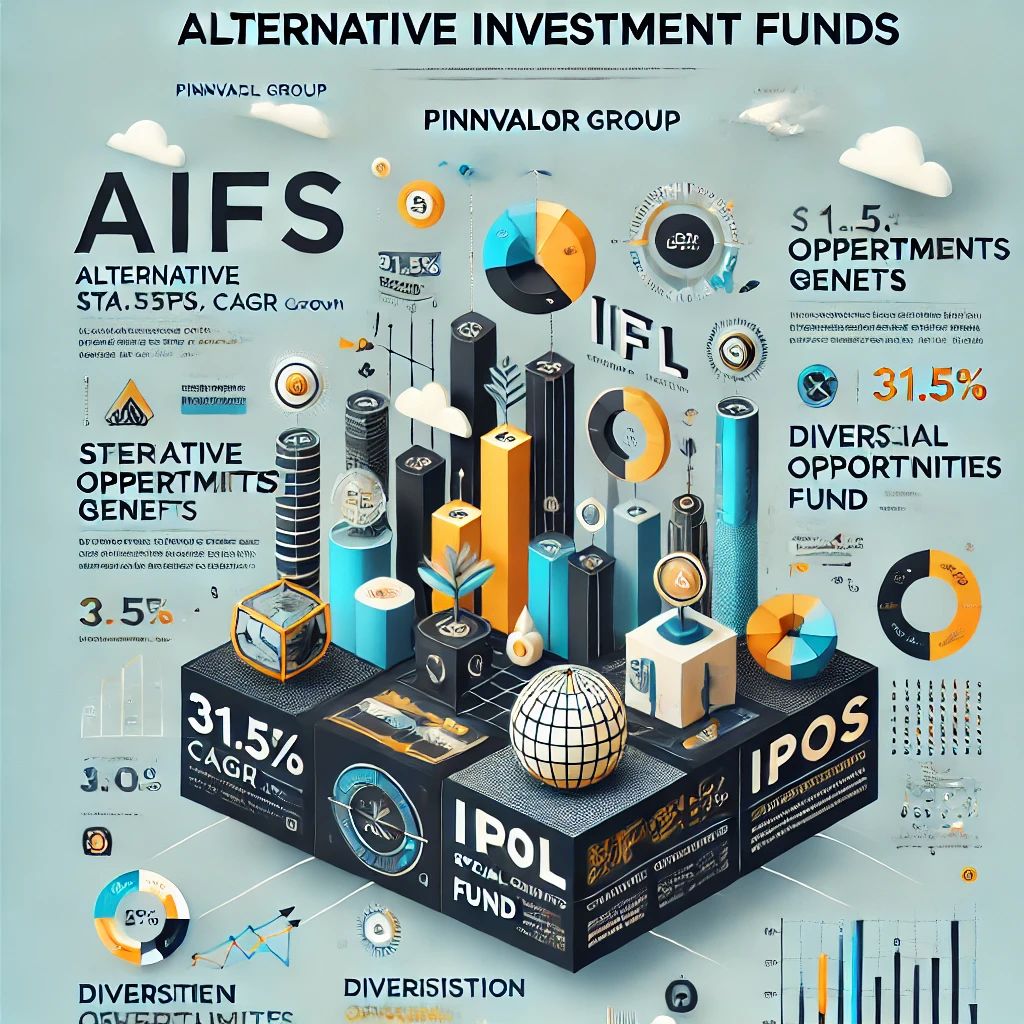
Alternative Investment Funds (AIFs): Unlocking Opportunities Beyond Traditional Investments
In today’s dynamic financial landscape, where traditional investment avenues like mutual funds and stocks are often limited in their scope, Alternative Investment Funds (AIFs) stand out as a powerful tool for high-net-worth individuals (HNIs) and institutional investors seeking to diversify and optimize their portfolios. With their ability to invest in non-traditional assets such as private equity, venture capital, and real estate, AIFs have become a cornerstone of sophisticated investment strategies.
AIFs are not just another financial product; they are a gateway to high-growth, high-potential sectors, offering diversification and tailored investment strategies that go beyond traditional markets.
Why AIFs Are Attracting Modern Investors
AIFs are not just another financial product; they are a gateway to high-growth, high-potential sectors. Here's why they are gaining popularity:
1. Diversification Beyond Traditional Markets
AIFs invest in unique asset classes such as distressed assets, art, collectibles, and infrastructure projects. This diversification allows investors to reduce portfolio risk while exploring high-return opportunities in niche markets.
Real Insight: Over 30% of Category II AIFs in FY24 delivered returns exceeding 50%, outperforming traditional market indices like Nifty50 and S&P BSE 500.
2. Tailored Investment Strategies
Unlike mutual funds, AIFs offer customized investment strategies catering to specific investor goals, whether it's income generation, capital preservation, or aggressive growth.
Example: Hedge funds under Category III employ complex trading strategies, including arbitrage and derivatives, to maximize returns in volatile markets.
3. Access to Emerging Sectors
Category I AIFs focus on startups, SMEs, and infrastructure—sectors that are critical for economic growth and often overlooked by traditional funds.
Case Study:
Sequoia Capital India, a Category I AIF, played a pivotal role in funding unicorns like Byju’s and Zomato, delivering exponential returns to its investors.The AIF Advantage for Investors
1. Professional Management
AIFs are managed by experienced fund managers with deep sectoral expertise and access to cutting-edge market insights, ensuring informed and strategic decision-making.
HDFC Bank Wealth: With its research-driven approach, HDFC’s AIF offerings focus on tried-and-tested strategies, protecting investor interests while maximizing returns.
2. Regulatory Oversight
AIFs in India are regulated by the Securities and Exchange Board of India (SEBI), ensuring transparency, accountability, and investor protection. From periodic reporting to strict compliance, SEBI’s framework adds a layer of confidence for investors. ver exceptional services. MIS helps in managing workforce schedules, performance tracking, and training programs.
3. Tax Efficiency
Category I and II AIFs enjoy a pass-through tax status, meaning investors are taxed directly on their share of profits, avoiding double taxation at the fund level.

Challenges Investors Must Navigate
While the potential rewards of AIFs are significant, investors must be aware of the challenges:
High Entry Barrier: Minimum investment thresholds start at INR 1 crore, limiting access to HNIs and institutional investors..
Illiquidity: Many AIFs come with long lock-in periods, ranging from 3 to 10 years, requiring a long-term commitment.Service industries handle sensitive customer data, making cybersecurity a priority.
Market Risks: Investments in startups, distressed assets, and leveraged funds can carry higher risks compared to traditional instruments.Employees and management may resist the shift to MIS due to a lack of technical expertise.
Real-World Examples of AIF Success
Global Perspectives
SoftBank Vision Fund: With over $100 billion in assets, this Category I AIF has transformed the global tech landscape by investing in companies like Uber and WeWork.
Blackstone Real Estate Fund: A leader in private equity, this AIF focuses on acquiring undervalued real estate assets, generating consistent returns for its investors.
Indian Success Stories
NIIF (National Investment and Infrastructure Fund): Backed by the Indian government, this AIF has attracted global sovereign funds to invest in critical infrastructure projects.
IIFL Special Opportunities Fund: A Category II AIF that capitalized on pre-IPO opportunities in companies like Policybazaar and Nykaa, delivering exceptional returns.
Emerging Trends in AIFs The AIF market is constantly evolving, with several key trends shaping its future:1. Sustainability and ESG Investments: Investors are increasingly prioritizing Environmental, Social, and Governance (ESG) factors, leading to a rise in ESG-focused AIFs.
2. Technology-Driven Insights: Artificial intelligence and big data are being leveraged to enhance investment decisions, optimize portfolios, and predict market trends.
3. Rising Domestic Participation: With growing awareness and wealth creation, more Indian investors are venturing into AIFs, reducing the market’s historical reliance on foreign capital.
Conclusion: AIFs as the Future of Sophisticated Investing
AIFs are reshaping investment strategies by offering diversification, access to emerging sectors, and potential for higher returns. With proper due diligence and risk understanding, they present a bold opportunity for investors to drive growth and unlock value in today’s dynamic financial landscape.
